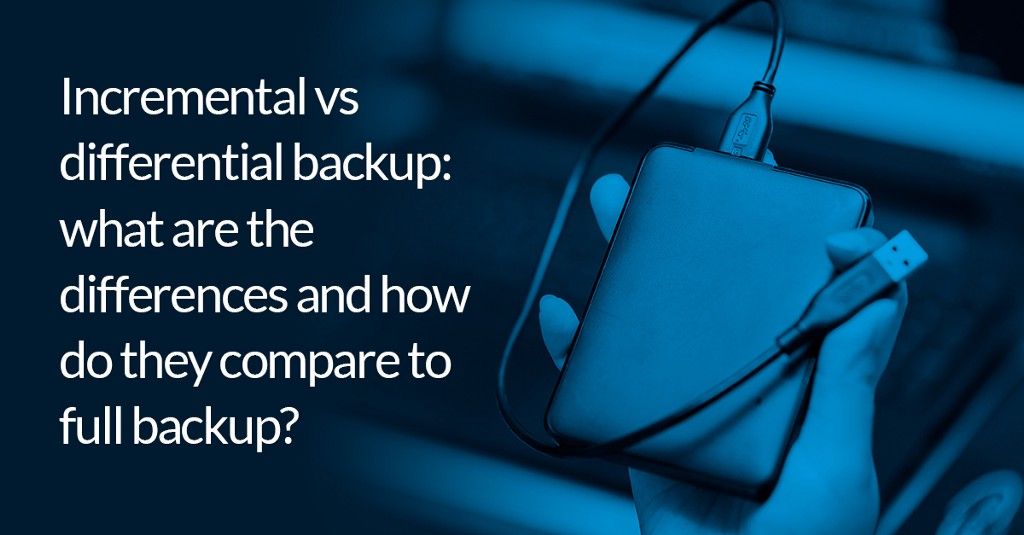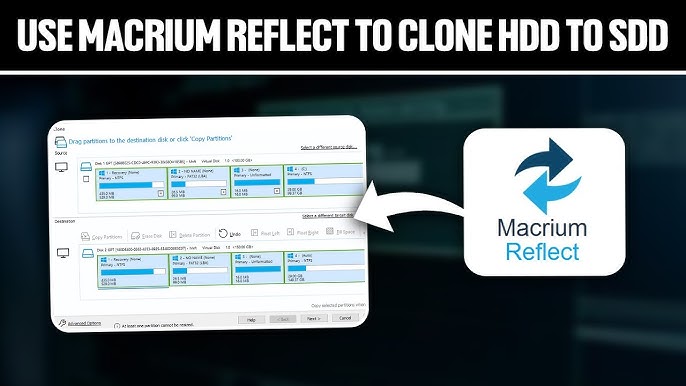Macrium Reflect has earned its place among the most trusted disk imaging and backup software solutions available today. Built with reliability, speed, and advanced backup capabilities in mind, it is widely used by IT professionals, home users, and businesses alike. One of the key reasons behind its popularity is its flexibility in backup types, notably the ability to perform both full and incremental backups. In this in-depth article, we’ll explore how Macrium Reflect handles these backup types, how each functions, their benefits, and how they can be used to create a robust backup strategy that ensures data integrity and fast recovery.
Understanding the Fundamentals of Backup Types in Macrium Reflect
Before diving into how Macrium Reflect supports full and incremental backups, it’s important to understand what these terms mean in the context of data protection. A full backup is a complete copy of the entire selected data set at a specific point in time. This includes all files, folders, system data, and any selected partitions. In contrast, an incremental backup only captures the changes made since the last backup, whether that previous backup was full or incremental.
Macrium Reflect is engineered to handle both of these approaches seamlessly. It provides users with the tools to create a comprehensive backup schedule that combines the strengths of full and incremental backups. This flexibility helps optimize storage space and improve the efficiency of backup operations without compromising on safety or recoverability.
How Macrium Reflect Executes Full Backups
When using Macrium Reflect, creating a full backup involves selecting the source data—this could be a partition, a full drive, or even an image of the entire operating system—and writing a complete snapshot of that data to the designated destination, which might be a local drive, a network location, or an external storage device.
Macrium Reflect’s full backup process includes not just the user data but also the Master Boot Record (MBR), the system reserved partition, and all metadata essential for a bootable image. This is particularly useful in system recovery situations where everything, including the OS, needs to be restored from scratch.
What sets Macrium Reflect apart is its ability to optimize full backup performance using features such as intelligent sector copy. Instead of copying every single bit on the disk, Macrium Reflect only backs up the sectors that are currently in use. This significantly reduces the size and time required to complete the full backup operation, without affecting the integrity or completeness of the data.
The Role of Incremental Backups in Macrium Reflect
Incremental backups are where Macrium Reflect truly shines for users who are mindful of time and storage consumption. An incremental backup captures only the data that has changed since the last backup of any kind. In practical terms, this means that if a full backup was taken on Monday and incremental backups were scheduled for every subsequent day, Tuesday’s incremental backup would contain only the data that changed since Monday, and Wednesday’s would include only the changes since Tuesday.
This method allows for significantly faster backup processes and more efficient use of storage. Macrium Reflect stores each incremental backup as a separate file that is linked to the preceding backup in the chain. This allows users to restore their system to any point in time for which an incremental backup exists, provided the full backup and all intermediate incrementals are intact.
Macrium Reflect uses advanced file system tracking to identify changes between backup instances. It utilizes a proprietary Changed Block Tracker (CBT) technology that monitors which blocks have changed since the last backup, ensuring that only relevant data is backed up. This results in very small incremental files and quick backup operations.
Creating a Balanced Backup Plan with Macrium Reflect
One of the standout features of Macrium Reflect is its powerful scheduling engine, which allows users to configure complex backup routines that mix full, differential, and incremental backups. Although differential backups are not the focus here, it’s important to understand that Macrium Reflect supports all three types and encourages users to design schedules that suit their particular needs.
For example, a common strategy might involve performing a full backup once a week and incremental backups every day. Macrium Reflect makes it easy to implement this by allowing users to set up backup definitions with custom rules, retention policies, and automated purge settings that clean up older backups based on user preferences.
The software also includes a tool called Macrium Reflect Scheduler, which integrates with Windows Task Scheduler to run backups automatically at predefined times. This hands-free approach ensures that backups occur consistently without requiring manual intervention, minimizing the risk of human error or oversight.
Storage Optimization Through Incremental Backups
Storage efficiency is a major concern when dealing with backup solutions, especially in environments with large datasets or limited space. Macrium Reflect addresses this by using incremental backups to keep the storage footprint as small as possible.
Each incremental file created by Macrium Reflect is relatively small compared to a full backup. This efficiency enables users to keep a longer history of backups without needing excessive storage capacity. Furthermore, Macrium Reflect supports compression options that can be applied to backup files, further reducing the space required while maintaining the integrity of the data.
Another storage-related advantage is Macrium Reflect’s ability to manage backup sets through retention rules. Users can specify how many full and incremental backups should be kept, and the software will automatically delete older files based on those parameters. This proactive cleanup process ensures that backup repositories remain manageable over time without manual maintenance.
Fast Recovery with Incremental Chains
One of the concerns that users often have about incremental backups is whether they can be reliably restored. With Macrium Reflect, the answer is a resounding yes. The software is designed to restore data from any backup point, even if it was taken as part of an incremental chain.
When restoring from an incremental backup, Macrium Reflect reconstructs the full data state by applying the base full image and the sequence of incremental changes leading up to the selected point in time. This process is streamlined and efficient, and it works seamlessly through the user interface or from Macrium’s recovery environment.
In scenarios where disaster recovery is needed, such as system crashes or ransomware attacks, Macrium Reflect allows users to boot from recovery media and access any available backup point—including those from incremental backups. The process is intuitive and robust, ensuring that systems can be brought back online with minimal downtime and data loss.
Verifying Backup Integrity in Macrium Reflect
A critical element of any backup system is ensuring that backups are valid and restorable. Macrium Reflect incorporates verification tools that can be used to confirm the integrity of both full and incremental backups. During the backup process, users have the option to enable file verification, which checks the newly created backup files for corruption or inconsistencies.
Additionally, the Macrium Reflect interface allows users to browse backup images and even mount them as virtual drives. This functionality lets users interact with the backup as if it were a physical drive, making it easy to validate that the data is correct and complete.
This feature also allows for selective file recovery without needing to restore the entire image. If a user only needs to recover a single document or folder from a backup, they can simply mount the image and copy the needed files, saving time and simplifying the process.
Macrium Reflect for Enterprise-Level Backup Needs
While Macrium Reflect Home Edition provides comprehensive backup capabilities for individual users, the software also scales well for business environments through its Site Manager and Deployment Kit editions. These versions offer centralized management of multiple backup clients, making it easier for IT departments to manage backup strategies across an entire network.
For businesses with critical uptime requirements, incremental backups play an essential role in achieving Recovery Point Objectives (RPOs). By scheduling frequent incremental backups—sometimes as often as every 15 minutes—organizations can ensure that their data is consistently protected against loss without overwhelming storage resources.
In corporate environments, Macrium Reflect’s support for incremental backups helps balance performance, security, and availability. With features like Rapid Delta Restore (RDR) and Rapid Delta Cloning (RDC), the software reduces the amount of data that needs to be written during restore or cloning operations, speeding up the process considerably.
Macrium Reflect and Backup Encryption
Another essential aspect of using incremental backups is securing them against unauthorized access. Macrium Reflect allows users to encrypt both full and incremental backups using AES encryption with configurable key lengths. Whether backups are stored locally or on network-attached storage, this encryption ensures that sensitive information remains protected.
Encryption settings can be applied at the backup definition level, ensuring that all backups, including incremental files, are consistently secured. Users are prompted for the decryption password during restores, and backups cannot be read or mounted without it, providing a strong layer of data security.
Recovery Scenarios Leveraging Incremental Backups
Incremental backups are not just about saving space—they’re also about restoring quickly to a known-good state when something goes wrong. Macrium Reflect empowers users to restore entire systems, partitions, or specific files from any point within a backup chain.
Imagine a scenario where a user experiences data corruption due to a software update. With Macrium Reflect, they can roll back the system to the state it was in before the update by selecting the appropriate incremental backup. This precision in recovery is one of the key advantages of using incremental backups in a structured backup plan.
Similarly, ransomware attacks can be mitigated by restoring from an earlier, clean incremental backup. Since Macrium Reflect allows users to retain a long chain of backup points without taking up excessive space, finding and recovering from such incidents becomes much simpler and more reliable.
Conclusion
To answer the question clearly—yes, Macrium Reflect does support both full and incremental backups. But more than just supporting them, it offers an exceptionally well-designed framework for utilizing both backup types effectively. The software’s combination of reliability, storage efficiency, fast recovery options, and robust scheduling tools makes it a standout choice for individuals and organizations alike.



